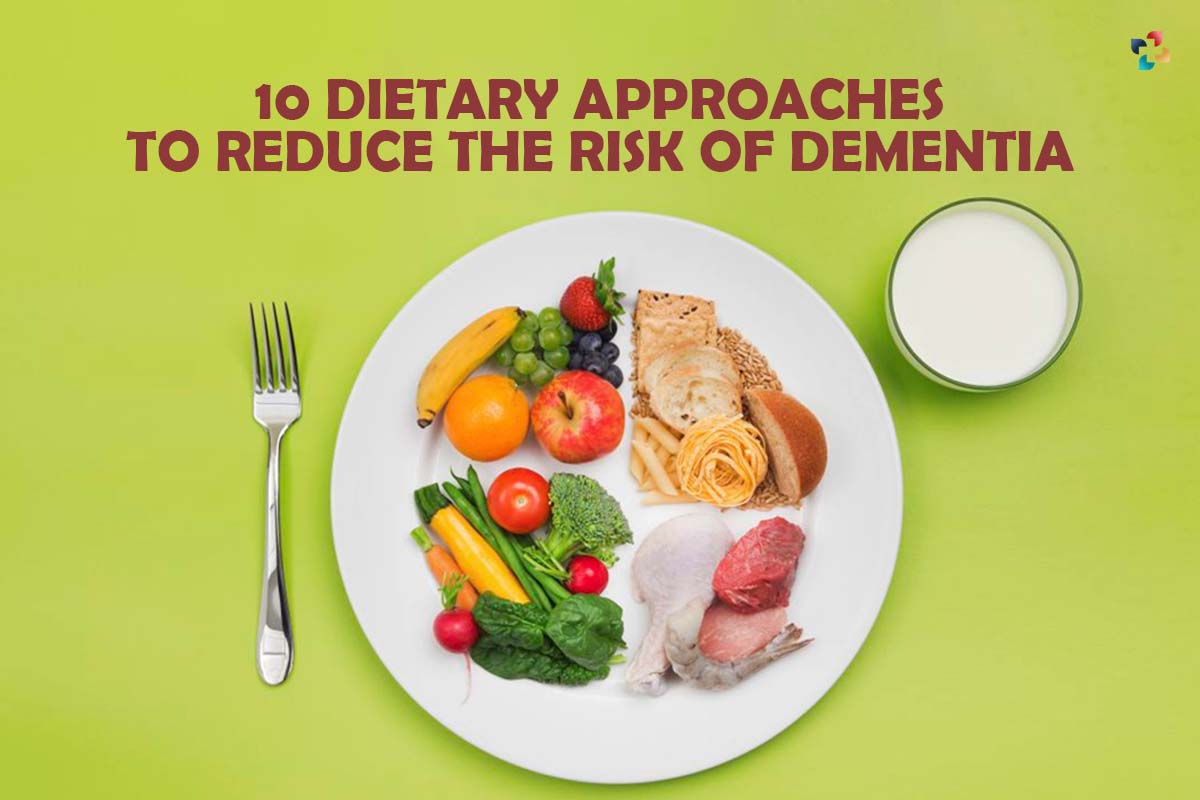It is common knowledge that one’s diet may have an effect on a person’s physical well-being. However, it may also have an effect on your brain. There is now some evidence to suggest that following a Diet to Reduce the Risk of Dementia, a diet that is heart-healthy as well as appropriate may lower a person’s chance of getting dementia.
It makes perfect sense to take care of both your brain and your heart at the same time. Because having heart illness or problems with circulation might increase your chance of developing dementia, it is important to take care of both your heart and your brain.
Researchers at Rush University in Chicago came up with the MIND Diet to Reduce the Risk of Dementia (Which stands for “Mediterranean-DASH Intervention for Neurodegenerative Delay”) in an effort to help prevent dementia and halt the loss of brain function that comes with advancing age.
It is a blend of two diets that have previously been shown to lower the risk of heart and circulatory disease: the Mediterranean diet (which is based on whole grains, fish, legumes, fruits, and vegetables), and the DASH diet (which stands for “Dietary Approaches to Stop Hypertension”). Controlling blood pressure, which is a risk factor for heart and circulation disorders as well as dementia, is the primary objective of the DASH diet.

It’s quite similar to the Mediterranean diet, however, the main focus here is on cutting down on salt consumption as much as possible. The Mediterranean diet is a quite useful Diet to Reduce the Risk of Dementia. Both diets are supported by a large body of research indicating that they may improve your heart health, and some data suggest that they can lead to reduced levels of mental decline.
Here are 10 Dietary Approaches to Reduce the Risk of Dementia:
1. The Mediterranean diet.
A diet that is rich in fruits, vegetables, whole grains, and healthy fats has been demonstrated to minimize the risk of cognitive decline. This kind of diet is known as the Mediterranean diet.
2. The DASH diet:
This diet, which places an emphasis on fruits, vegetables, whole grains, and dairy products that are low in fat, has been associated with a lower risk of developing dementia.
3. The MIND diet:
The Mind diet, which is a hybrid of the Mediterranean diet and the DASH diet, places an emphasis on eating foods that have been shown to be beneficial to the health of the brain.
4. A Low Carbs diet:
A diet low in carbs that is rich in healthy fats and protein may enhance cognitive function while also lowering the chance of developing dementia.
5. A Low-Fat diet:
Consuming a diet low in fat: Consuming a diet that is low in fat and rich in fruits, vegetables, and grains that are whole may help lower the chance of developing dementia.
6. A diet high in antioxidants

Consume a diet high in antioxidants: Consuming foods that are strong in antioxidants, such as berries, leafy greens, and nuts, helps protect the brain from damage and lowers the chance of developing dementia.
7. A diet rich in omega
Consuming a diet rich in omega-3 fatty acids Consuming foods that are high in omega-3 fatty acids, such as fatty fish, flaxseed, and walnuts, has been demonstrated to enhance brain function and lessen the incidence of dementia.
8. Foods rich in B vitamins
Consume foods rich in B vitamins. Vitamin B12 and folate (B9) are particularly essential for maintaining healthy brain function. You may get these vitamins in meals like fish, chicken, and leafy green vegetables.
9. A diet low in sugar
Because eating too much sugar may raise the risk of dementia, having a diet that is low in added sugars is essential for maintaining healthy brain function.
10. Whole foods Diet
A diet that is centered on whole foods rather than processed foods may minimize the incidence of cognitive decline and dementia. This is because whole foods are more nutritionally dense than processed foods.

Does the MIND diet work?
The diet has only been around for a short while. It wasn’t until 2015 that the first study demonstrating its efficacy was released; at this point, the research is still in its infancy. The participants in the study were followed for an average of 4.7 years.
According to the findings of that research, which had 960 participants, those participants who followed the Diet to Reduce the Risk of Dementia. The most diligently had brains that were the functional equivalent of having aged 7.5 years less than those participants who followed the diet the least.
Additional research is required to validate these results and better specify the foods and amounts that were taken into account. Even if you are unable to adhere to every single piece of advice on the diet 100 percent of the time, it still seems to lower your chance of developing dementia.
However, there is not enough information to justify including it in the national dietary recommendations at this time. Additional research is required to validate these results and further hone in on the foods and amounts that should be considered.
We are aware that this particular diet may assist to safeguard the health of the heart. Because cardiovascular disease and dementia share many risk factors (including high cholesterol and obesity), it stands to reason that a diet that is good for the heart might also help lessen the chance of dementia. Sadly, no diet can reverse or cure dementia but there is a Diet to Reduce the Risk of Dementia. Researchers that get funding from the BHF are researching into strategies to prevent dementia, particularly vascular dementia.
Diet and Dementia Risk
Alterations in the brain may take place many years before the onset of the first signs of Alzheimer’s disease. Everyone should follow a healthy and balanced Diet to Reduce the Risk of Dementia. These brain alterations at an early stage imply that there may be a window of opportunity to avoid or postpone the onset of dementia symptoms. Researchers are investigating a wide variety of potential solutions to this problem, including the use of medications, changes to people’s lifestyles, and various combinations of these treatments.
To Know More About Diet Visit: What is Diet? What are Different Types of Diets?











